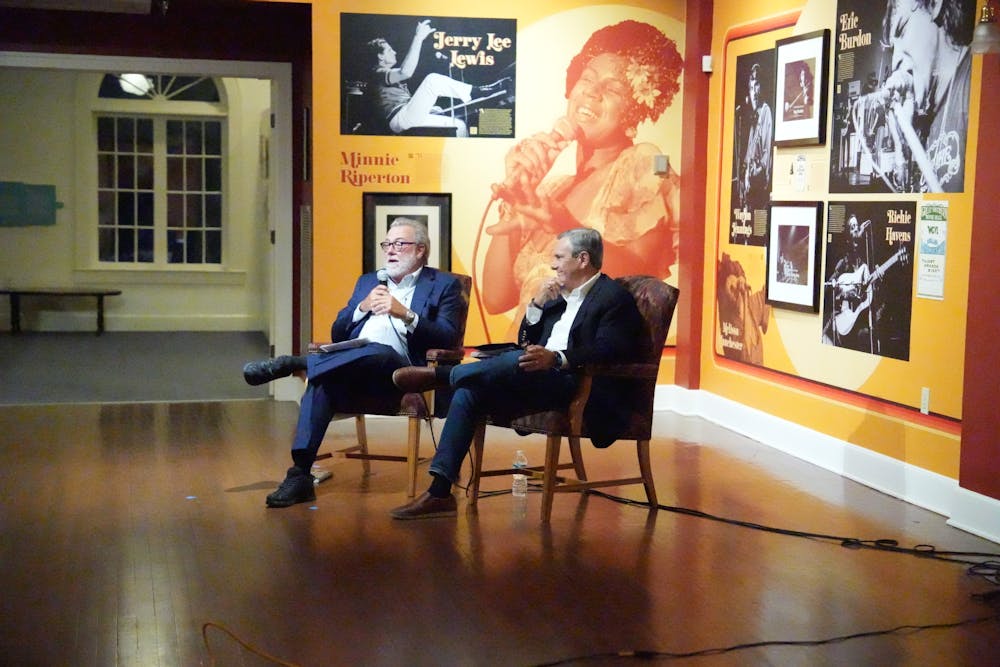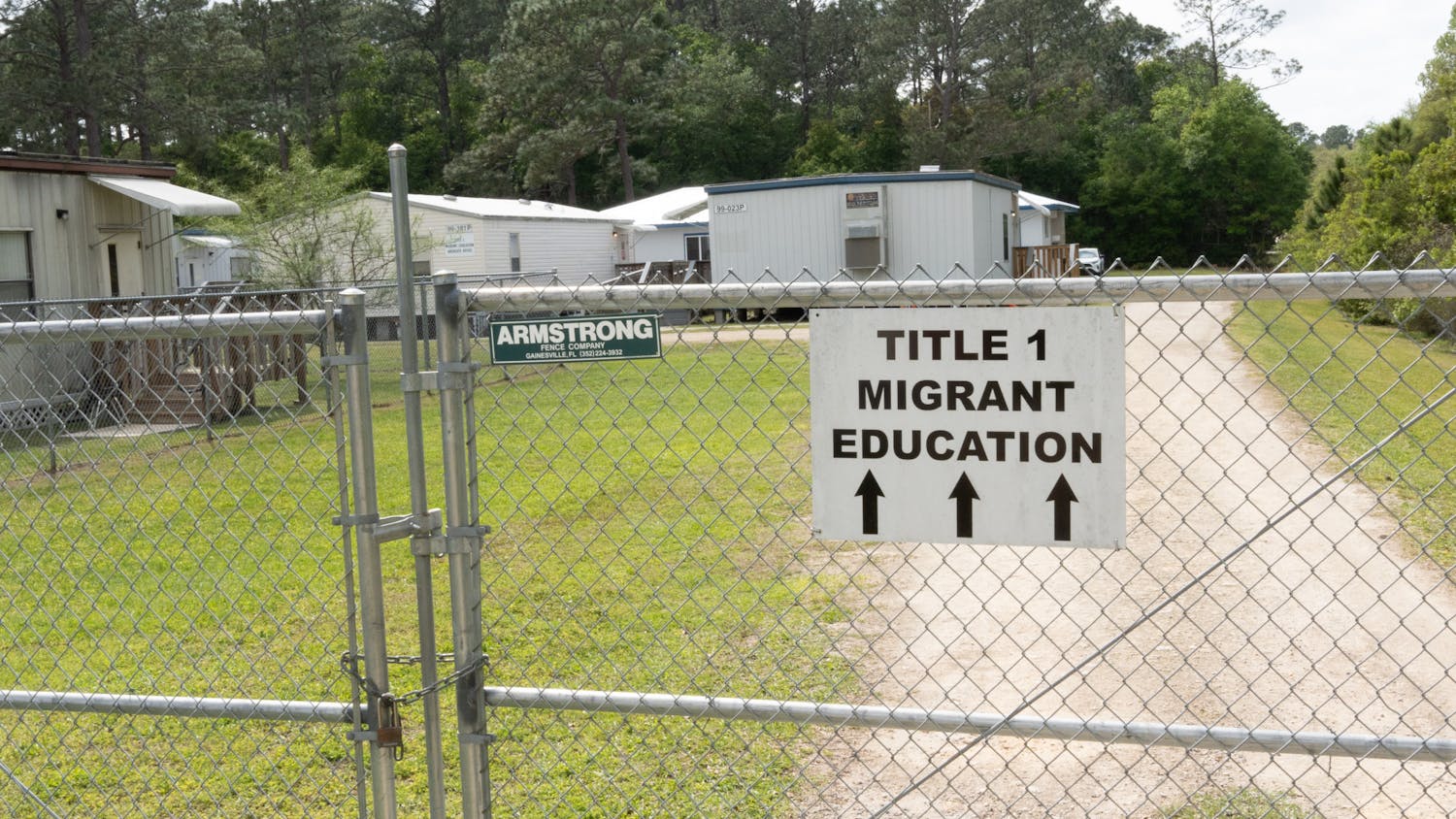Conversations in Spanish and English faded as two men approached the seats wired with microphones at the front of the room, beginning the night’s discussion on the Cuban diaspora.
A crowd gathered in the Great Southern Music Hall exhibit in the Matheson History Museum Sept. 20 to meet authors David Powell and Mario Cartaya. The event, entitled “Early Cuban Exiles: Memories of Loss, Struggle, and Rebirth,” centered around an interview between these authors on their respective books.
Published in March 2022, David Powell’s “Ninety Miles and a Lifetime Away: Memories of Cuban Early Exiles” focuses on interviews with 54 Cubans who fled after Fidel Castro assumed power in 1959.
The inspiration came from an enticement to the stories of Cubans that he heard everywhere he went, Powell said at the event.
“The stories are about people who are caught up in a conflict between powerful historical forces over which they have no control,” Powell said. “They help us understand the ability of we humans to contend with things that seem so much bigger than we are.”
Throughout his book, Powell explores these stories with the intention of shedding light on the diversity of experiences that these exiles faced when immigrating to the U.S.
“There are so many different episodes of the Cuban diaspora, the individual stories are different,” he said. “They came as part of a family, they came as unaccompanied minors through Operation Pedro Pan. So it really is the sum total of those episodes in my mind that really reflects what the experience was.”
Despite their differences, Powell also found common threads between many Cuban exile experiences; among them, their initial economic hardships and sheer drive to succeed, he said.
Mario Cartaya published “Journey Back Into the Vault: In Search of My Faded Cuban Childhood Footprints” in February 2022 as a reflection on his lost childhood memories due to being uprooted from his home at such a young age.
“I realized I could not remember how I got from there to here,” Cartaya said at the event. “Because I could not remember the first eight years of my life. Now we know upon returning that my subconscious had bottled all those memories in a place that I couldn’t access to protect me from exactly what I needed to remember.”
Throughout the event, Mario related many of his experiences in attempting to recover this lost childhood. From remembering the inciting discussion that led to his family leaving for the U.S., to discovering family members in his mother’s hometown that he had never met, Mario’s stories reflect the reality of many Cuban exiles’ lives of separation and loss.
“[Cuba] is only 90 miles away,” he said. “Yet, it took me 56 years to travel that far. The differences between us keep us from daring to go back. So many lives have been torn apart. For every Cuban who has immigrated, there's a Cuban back home that lost them and will never see him again.”
During the Q&A portion of the event, several Cubans from the crowd rose to tell their stories.
Sylvia Haller, a 75-year-old participant at the event, shared her experience as one of the migrants involved in Operation Pedro Pan, a movement that secretly transported over 14,000 Cuban minors into the U.S.
Maria Edwards, another early Cuban exile, described how her family fled Cuba aboard an ex-American Fruit Company ship used to transport medicine and food to Havana harbor.
The event occurred in conjunction with one of the Matheson’s current exhibitions: “We Are Here: Stories from Multilingual Speakers in North Central Florida.” The exhibit features 10 visual collages created by artists of 10 different languages present in North Central Florida. The goal of the exhibition is to expose these stories and the linguistic diversity of the area, said Kaitlyn Hof-Mahoney, the 30-year-old Matheson History Museum Executive Director.
“On the front of each panel next to the collage, you have that speakers' words in their own language,” Hof-Mahoney said. “It’s to give people who speak English a taste of what it’s like to be somewhere where your language is not centered.”
The Matheson museum will be hosting another event at 4 p.m. Oct. 14 called “Stories of Immigration: Sharing, Learning, and Supporting Our Immigrant Neighbors.”
“It will have both a section of the program sharing resources and organizations in our community who work with immigrants and people in our area who have limited English proficiency, to provide them with the resources that they need,” Hof-Mahoney said.
Contact Eluney at editor@alligator.org. Follow him on Twitter @Eluney_G






